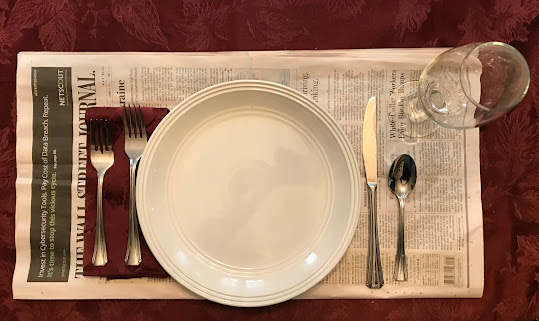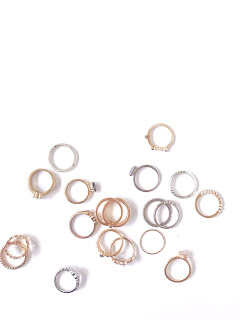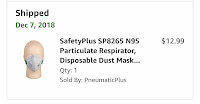The Media is a Buffet
If you’re not consuming the good stuff, it’s your own damn fault
To talk about “the media” and lump together local news, legacy outlets, basement bloggers, corporate talking heads, propaganda mills and all the rest makes as much sense as to talk about “food” and lump together Twinkies, gourmet foo-foo food, Big Macs and wholesome meals you made from the veggies you grew in your own garden.
There are many excellent news sources that keep us informed. But other corners of the media landscape produce fluff meant to entertain, not inform. And in the darkest corners, disinformation is concocted by propagandists who have figured out lies are more lucrative than truth.
It’s pretty ironic that the people who most howl about hating “the media” are often part of the media themselves. I don’t know how they keep a straight face. Often, those who are most upset about “fake news” love themselves a good propaganda mill.
How can you choose good sources of information? Look for a media outlet that does original reporting. How many sources are used in the story? How reputable are those sources? Do you usually get a pleasurable surge of validation when you consume this source? Stop. You are reading propaganda you agree with, not news. A legit media outlet is going to challenge you sometimes. If you’re liberal, read something like the Wall Street Journal regularly. If you’re conservative, read the New York Times. Yes, I’m biased in favor of print publications (even if you read them online) because there’s real value in being able to actually read and study a piece rather than passively watch or listen to someone read a script to you. I like to go back and check things like a source’s title or a complicated explanation. To get all your news from TV and videos is like living on a liquid diet. You need some solid food.
I have a high level of trust in legacy news outlets staffed by professional journalists because I understand how newsrooms work. I was in the media for about 30 years, mostly doing what we used to call “community journalism.” What happened in my little newsroom wasn’t exactly the same as what happens at a major media outlet, much the same way that my bread-baking process is a little different than that of a big bakery. Still, the basics are the same.
In my newsroom, we had frequent, spirited discussions about what stories we should do, what sources we should talk to and what questions we should ask. People had different opinions about the proper direction of a story and were not shy about speaking up. All of us cared about our credibility and how we were seen by other journalists. At stake were our reputation, our future hireability by reputable outlets and pride in our work. We did our best to keep our opinions off the news pages, and if we erred, somebody in the newsroom with different personal political leanings would be quick to point it out. Sometimes, reporters with strong views on something like abortion or gun control would ask someone with the opposing view to give their story a quick read to check for bias. That’s in a traditional newsroom. If it’s a newer outlet that lacks the traditions of journalism, things may be different.
Some journalists are experts on personal finance or state politics or the criminal justice system or whatever else is on their beat. But most are generalists. We know at least a little bit about everything, because a few years ago we wrote a story about whatever it is we’re talking about. We may not be experts on it, but we have a working knowledge of it. So we are perplexed when people are ready to swallow stuff that we can see is no good.
Working in a newsroom taught me a little bit about a lot of things. I’m not an expert in the criminal justice system or municipal finance or road construction or how property is assessed and taxed or how elections work or how inquests are conducted or how death certificates are filled out or how schools are funded or why farmland is valued or a thousand other things — but I do have a good basic foundation in all of these. So, for example, when thousands of people suddenly began questioning whether Covid should really be listed on death certificates, they were just sure someone was lying to them. The actual problem was these folks had never paid attention to how the cause of death was determined before. They’d never needed to. But now, they no longer trust “the media” and are ready to question more things. They just question it wrong.
Ideally, everybody would be intellectually curious and civic-minded enough to learn how our society works so we could all understand the issues of the day and hold informed opinions. We still wouldn’t agree on everything, but at least we’d understand each other. Right now, no matter what issue you want to talk about, there’s a decent chance a good chunk of the public is forming an opinion that’s not based on good information.
People either need to be informed, thinking citizens or, if they're unwilling to do that, they should step aside and let the more thoughtful people decide how we’re going to do things. If you don’t know how to read a map, please stop giving the driver directions.



Comments
Post a Comment